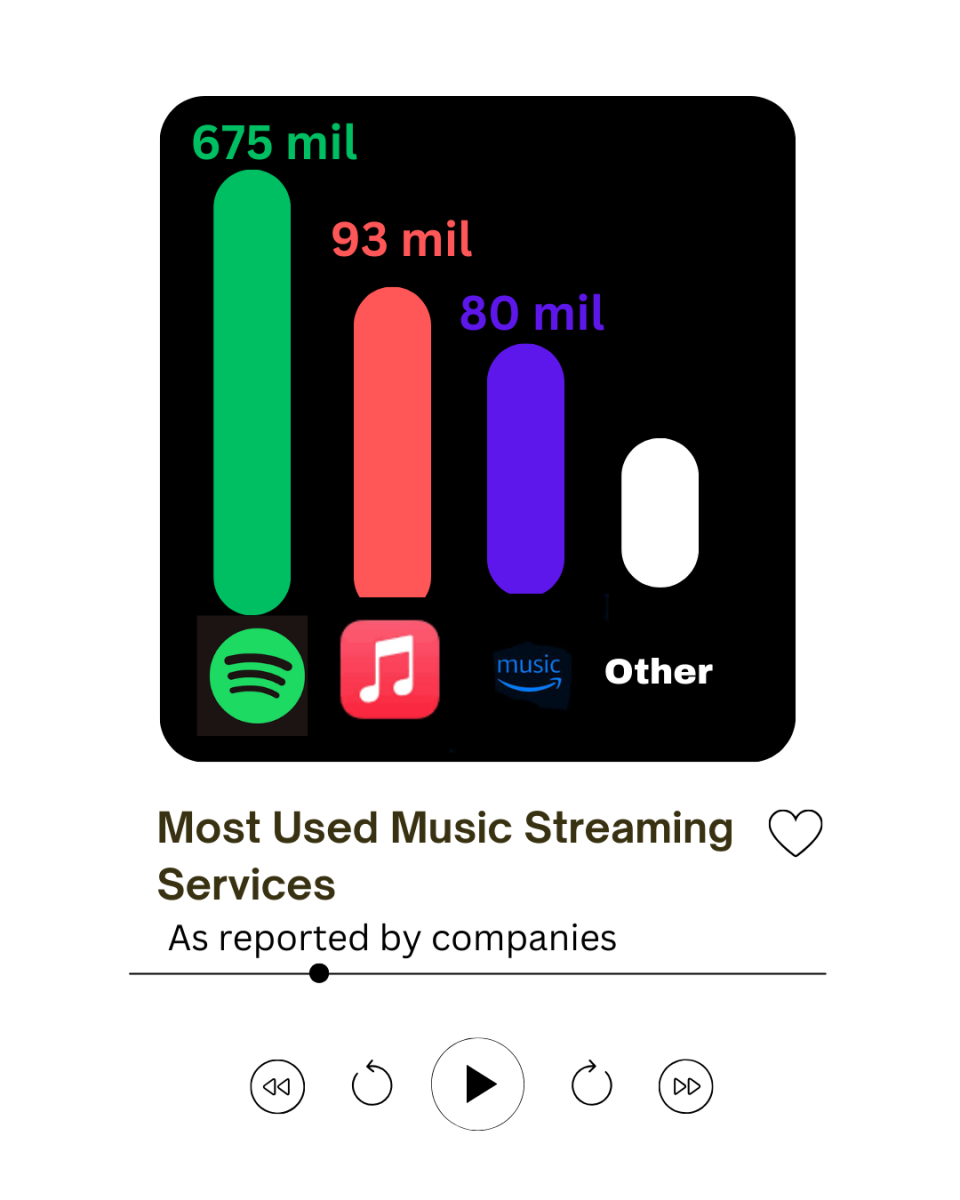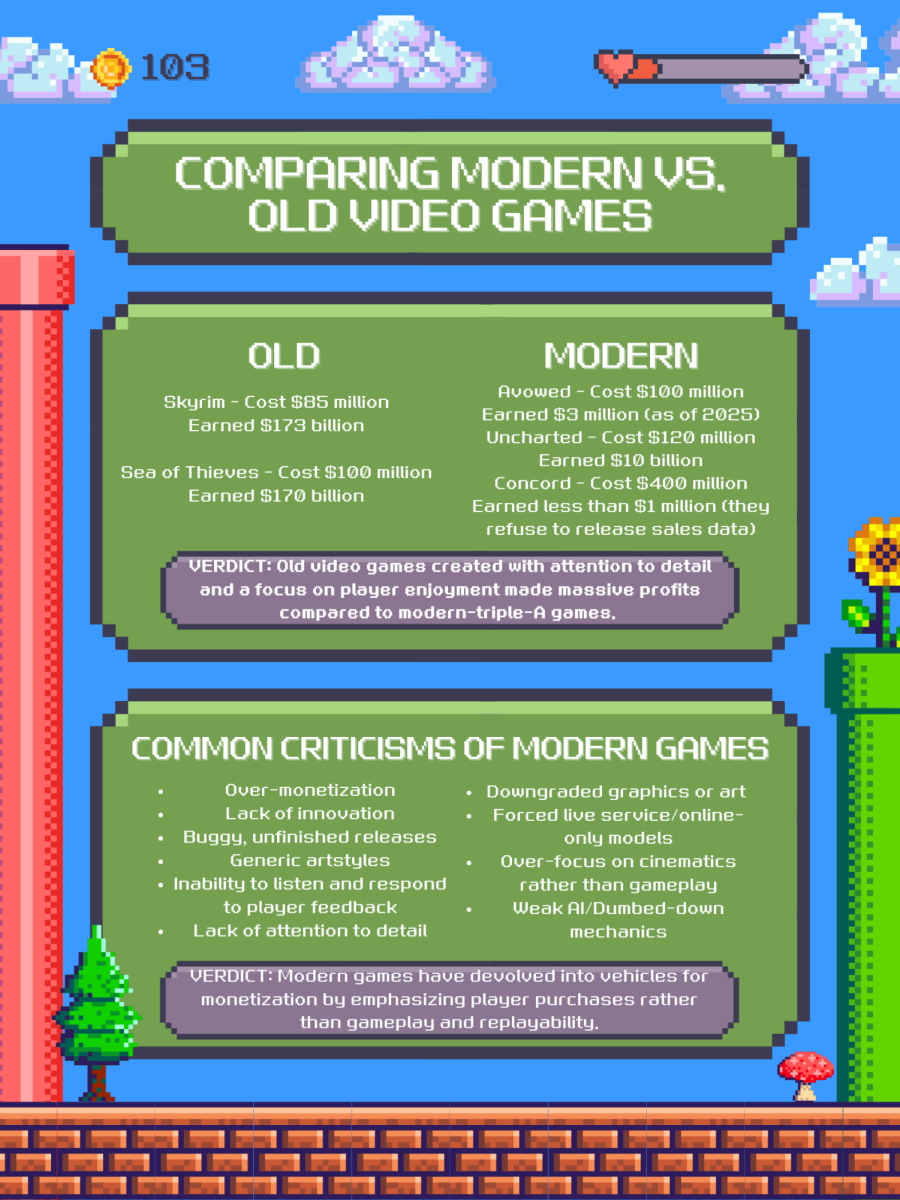“My computer is broken”… “My printer ran out of ink”
These pieces of modern technology are the proverbial dogs currently eating the homework. These excuses, however, never lose validity as numerous things can go wrong when one relies on such a complex medium for (historically) simple assignments that now serve to disincentivize a student and deem the excuse either necessary or desirable. Currently, there is too much emphasis on technology in schools. Whether homework or class work, this emphasis has pervaded every aspect of student life and complicated it.
Students in science courses contend (sometimes as much as biweekly) with WebAssign, a website that generates application questions for a given chapter in a given subject (physics, chemistry, etc.). Its rigid grading system leaves no room for partial credit and often forces students to the very edge of insanity with only a certain number of tries and the smallest difference from the expected answer noted as wrong. That, and students are subject to the website’s failing as happened frequently earlier this year. The site would shut down for large periods of time, and those who were banking on a certain amount of that time specifically allocated for the infuriating questions were unable to work as they had planned. Even with that explanation, teachers won’t always extend the deadline (one that must be kept as the system will disallow answer entry after the due date/time) for there being a record of when a student first tried to access the assignment and all subsequent attempts. With too few log-in attempts too close to the deadline, students forfeit the right to any extension, especially if other students have begun or completed the same work.
Nothing, though, competes with the Physics Quizzes for their true unfair complication. Basically, if you don’t have a PC (or good access to one) or knowledge of how one works, you can’t do the assignment. Not only does a Mac owner have to buy a new laptop (the cheapest
going for $249.99 at Best Buy) or Parallel Desktops (an $80 download that allows a Mac to run Windows)- the two workarounds that are offered near the program download on the physics websites, but the software has trouble downloading onto and running from PCs. It may be an easy grade for a teacher and seem to be easy feedback for students, but it’s little more than a time suck. A quick solution would be to give time in class (when PCs with the software pre-installed are readily available) to complete the quizzes; another would be to find an alternative quiz format assignment that doesn’t have all of the inherent stipulations that just end up excluding and frustrating students.
That’s not to say that the questions aren’t beneficial. The medium in which they are asked isn’t. Teachers now have access to their students across hours previously spent blissfully (Sorry, teachers!) apart. Language and science learners alike are confronted with mid-evening or weekend deadlines that could not have been feasibly enforced before the advent of many homework technologies.
Despite the beliefs and best intentions of International Language instructors, the Language Lab (while acknowledged as a valuable resource) is widely considered a least favorite activity among students. Sites such as Conjuguemos are a useful tool, but are frequently the most forgotten homework, not because they are intrinsically less memorable than other assignments, but because they take more time in dealing with servers and potential tech troubles than the projected five minutes. Many students choose to leave Conjuguemos activities to their free period to be done in a compromised manner on the small, and increasingly reliable (for this purpose) smartphone, giving some students the opportunity to get homework done during lunch, where those without such a sophisticated phone (or access to a friend’s) would need to give up half of their lunch (a veritable catastrophe for those in an AP science course) and go to a computer-equipped resource center to do their work.
For Spanish students, Supersite and Realidades are little more than extra-involved worksheets. There is no tangible benefit to the average student to use a computer in their nightly work. Despite best intentions, the only benefit seems to be to the teacher, and while students respect the effort to relate to us on our own tech-obsessed level, those with the actual computer competence to prefer the webpage to the physical page are in a strict minority.
Another example is SmartMusic. It’s impossible to install (with more than a few codes, clicks and drags), harder to uninstall, and lends itself to single-handedly making a student (who may not have been all that opposed to practicing before the use of the program) loathe any form of instrumental anything. During my freshman year (a time I now regard as comparatively low stress), a particularly frustrating four-measure assignment helped my violin bow find its way to the solid aluminum shell of my MacBook Pro to leave a dent, which I now genuinely like as a reminder of why music is best judged by a human and not the arbitrary listenings of a laptop microphone. Other orchestra members had similar experiences, likening its overly harsh (and often faulty) grading system to some cruel psychology experiment the sole purpose of which was to see how far over the edge repeated futile actions could make someone go.
Even Libertyville High School’s new preoccupation with Google can be problematic. In every class that a Chromebook has been used, at least one student has been incapable of remembering their login (or that they even have a login, for that matter). This particular technology set has many kinks that have yet to be worked out, and during a recent AP Language and Composition in-class essay, two Drops of Ink editors encountered trouble when their respective netbooks were “trying to connect…” and threatening to negate the work of the previous half hour. Had the essay been pen and paper, some nervous squeaks could have been avoided.
While there are those who say that technology is not all bad (it really isn’t) or who may be proponents of easy sharing through Google Docs, expedited communication with Gmail, and instant feedback through Webassign and Conjuguemos, the ramifications of too much technology are already felt in today’s schools and society. A backlash towards “archaic” mediums for homework and class assignments is sure to come because of the instability of the current innovations. When it does, I’ll be waiting with my stacks of looseleaf paper and sharpened pencils to welcome simplicity back to my nightly assignments.
To see a student’s reaction to WebAssign, follow this link: https://vine.co/v/hvPljzVW6q2fb_action_ids=589979104395581&fb_action_types=vineapp%3Apost&fb_source=aggregation&fb_aggregation_id=288381481237582









